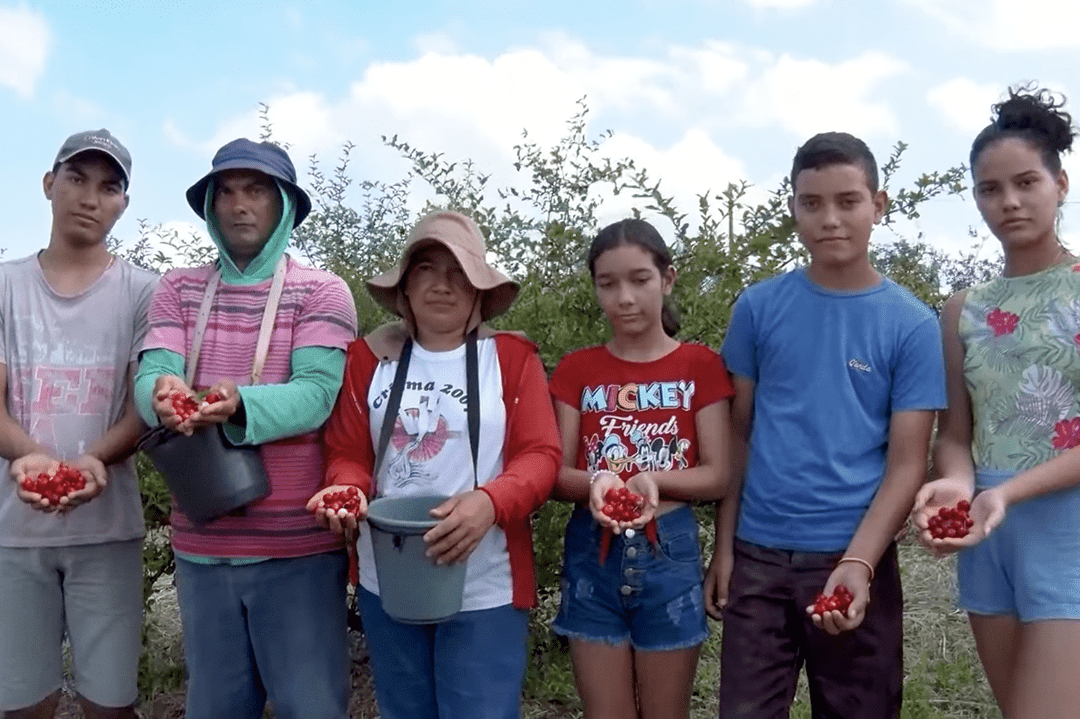Dedication and persistence are real allies of SENAR‘s Technical and Managerial Assistance (ATeG) to make agricultural production succeed. This is the case of the farmers José Maria Portela and Maria Barbosa da Silva, from Parnaíba city, on the coast of the Piauí state in Northeastern Brazil. After 18 years of working in the field with several vegetable and fruit crops, the couple and their four children can finally guarantee their livelihood on their rural property.
The couple obtained guidance from SENAR’s field technician Marcelo Simão when estimates showed that investing in an area would be more profitable than working with leased land. Then the change happened in the family’s life, as they began growing organic acerola.
Acerola (Malpighia emarginata DC) is a tropical fruit with origins in Central America and is largely cultivated and consumed in Brazil. Its economic value is mainly due to its high contents of ascorbic acid, carotenoids, and phenolic compounds that have nutraceutical features and make acerola a “super fruit”. For Maria, is an important income: “Acerola means everything to our family because before it, it was very hard. Today we own our land, from where it comes the family’s livelihood,” she admits.
Before advising the farmers to buy their own plots of land, SENAR’s ATeG field technician suggested some changes in soil management, such as increasing systematically the frequency of organic fertilization. The service also included guidance on professionalizing the business, with a recording of all revenue and expenses and control of inputs.
As a result of implementing these suggestions, José says that profits increased by about 20%. “Our acerola income improved, and now we are working with five companies to process the fruit. We can only be thankful for that”, he celebrates.


